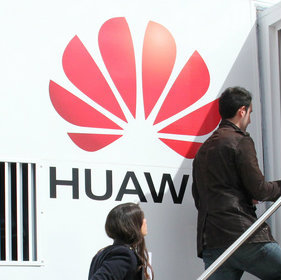
Also in today's EMEA regional roundup: Ericsson's aboard the 5G train; Lebara chooses Openet for charging; BT fast-tracks ethnic minority employees.
The UK government is on a collision course with lawmakers in the Parliament's upper chamber over its policy on Huawei's role in the country's 5G network, and is likely to lose an important vote on the issue tomorrow (Tuesday), according to the Daily Mail. Prime Minister Boris Johnson has already faced opposition from within his own party to his government's decision to allow Huawei to play a limited role in the 5G network on security grounds but, says the report, a group of peers in the House of Lords will tomorrow seek to amend proposed legislation to make it illegal to use technology from companies linked to human rights abuses, a category in which they place Huawei as a result of its supply of equipment to the security forces acting against Uighur Muslims in China's Xinjiang province. (See UK in search of Huawei 5G replacements – report, Eurobites: Is a Huawei handbrake-turn ahead for UK? and Huawei befuddled by reports of total 5G ban in UK.)
Ericsson is positioning itself for more 5G-fueled work on the railways by joining Unife, the European trade association for train builders and rail equipment suppliers. In 2018, Ericsson teamed up with Swisscom to demonstrate "network slicing" techniques to address the needs of the rail sector, while in Nürnburg, Germany, the vendor has built several 5G radio sites at the city's switching yards to enable the use of drones and AI to help detect accident risks on the track.
Lebara, the mobile virtual network operator specializing in cut-price international calling, has turned to Ireland's Openet for charging software for its service in five European countries. Openet's Evolved Charging Suite runs in the cloud on Amazon Web Services and is managed by Rackspace.
BT, the UK's incumbent operator, is responding to societal disquiet following the killing of George Floyd in the US by launching an Ethnicity Rapid Action Plan that includes a scheme to fast-track high-potential people from ethnic minority backgrounds in a bid to get more of them into senior management positions. As part of the plan, every shortlist for a senior management role will, says BT, be "diverse." In a statement, BT's chief strategy and transformation officer, Mike Sherman, said: "It is important to remember that we aren’t starting from scratch on our diversity and inclusivity agenda. We already have bold and ambitious plans and we continue to support each of our ten diversity networks across the organisation. However, it's clear that we need to go further, faster."
Northern Ireland is set to leave near-neighbor England in its wake as releases it COVID-19 contact-tracing app "within weeks," according to a BBC report. The app, says the report, will be based on the "decentralized" platform jointly developed by Apple and Google, where user data relating to infections and potential infections is stored on the phone rather than on a central server. It has also been designed to work alongside the equivalent app being used on the other side of the land border, in Ireland.
Middle Eastern operator Ooredoo is giving itself a pat on the back for getting ranked 25th in Forbes magazine's "The Middle East’s Top 100 Companies 2020" category, as well as making the top three in terms of regional telcos. Ooredoo was founded as the Qatar National Telecom Service in 1949, with one Doha telephone exchange and a capacity of just 50 lines.
Telefónica UK (O2) is using an expected surge in "staycations" this year, whereby Brits take their vacations in their own country, as an excuse to trumpet the work it has been doing this year to "boost" 4G in 91,000 (by postcode) locations, including "almost 400 of the nation's favourite tourist destinations," it says, maybe a tad desperately.
— Paul Rainford, Assistant Editor, Europe, Light Reading
Read more about:
EuropeAbout the Author(s)
You May Also Like




_International_Software_Products.jpeg?width=300&auto=webp&quality=80&disable=upscale)






